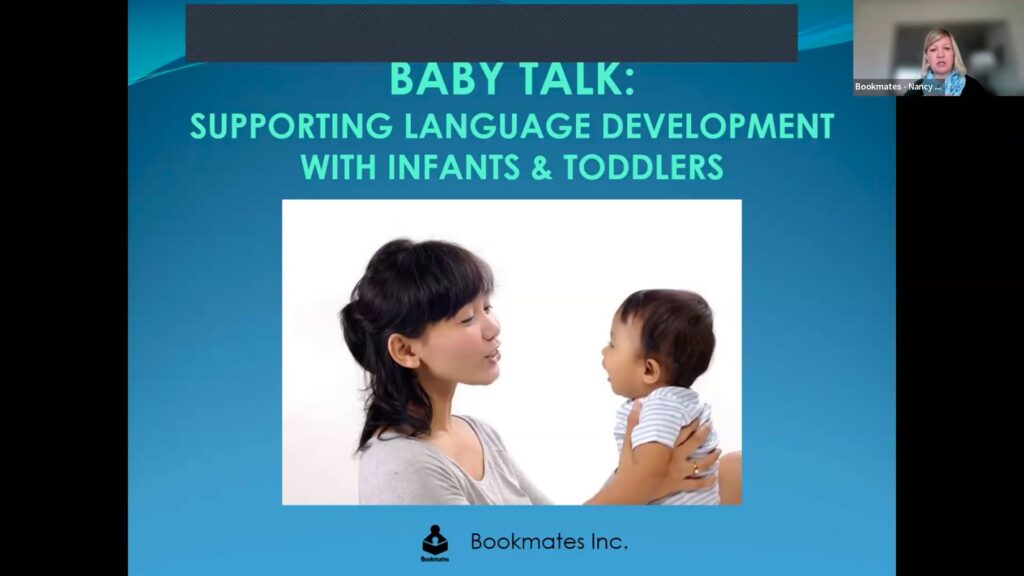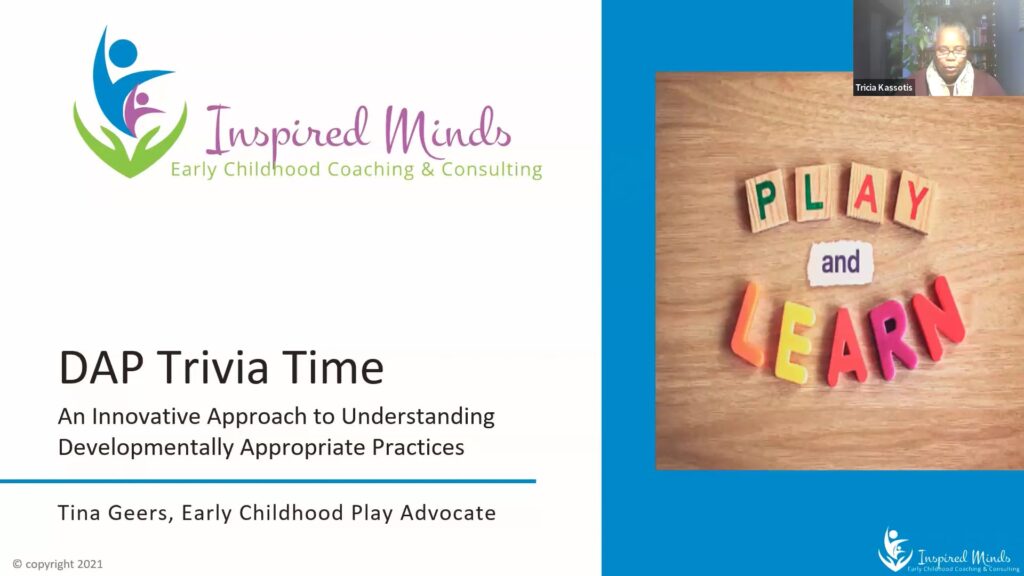Child Development
We Dig Dinosaurs! A New Way to Follow Their Lead
What do you do when a child in your program becomes obsessed with dinosaurs? You follow them! Nancy Tovell, from Bookmates, is a master at turning a simple interest into a deep, literacy-rich learning experience. In this recorded session, you'll explores stories, rhymes, songs and hands-on activities that can be easily adapted. This session is packed with practical ideas you don't want to miss!
Free E-Book: An Educator’s Guide to a Whole-Child Approach
Whole-child learning goes beyond a simple idea—it supports every child’s growth by celebrating strengths, personalizing instruction, and reducing challenging behaviors. This approach can help us create spaces where all children can thrive. Explore what it means, why it works, and how to apply it in this e-book.
Baby Talk: Supporting Infant and Toddler Language Development

Are you working with young children who are actively learning language(s)? In this his online workshop Nancy Tovell of Bookmates focuses on how we can support children’s language development in the early years. Included will be practical, interactive family literacy strategies to help children engage and communicate with their caregivers, while building fundamental speech and language skills.
Handouts:
Baby Talk Literacy Activity Ideas
Baby Talk Rhyme Booklet
Baby Talk Suggested Book List
DAP Trivia Time

Led by Tina Geers, Inspired Minds ECC Consulting Inc., is a hands-on, full-participation workshop exploring Developmentally Appropriate Practices (DAP) and how they shape early learning environments, professional practices, and children’s learning. Participants will dive into the cornerstones of DAP and discover practical ways to implement them in their play spaces. Learn how to follow the child’s lead while strengthening your professional practice.
Helping Children Thrive and Grow

Helping Children Thrive and Grow explores the emotional journey of parenting while settling into a new country. This workshop focuses on building parental resilience through nervous system and body-based practices that can be modeled and shared with children to support regulation, security, and connection. Participants will learn how attachment-based strategies, emotional awareness, and cultural strengths can help newcomer families move beyond coping to truly thrive.
Led by Georgianna Lee, Counsellor and Coach, this session supports professionals in helping parents recognize emotional needs, strengthen empathy, and deepen parent–child relationships during times of transition.
Handout: Helping Children Thrive and Grow
Ages & Stages: Caregiver’s Guide to Supporting Children’s Racial Learning
Every child is learning about race, starting in their earliest months of life. What they learn, when, and how they make sense of it, depends on the messages they get from caregivers, communities, and the world around them. The Ages & Stages Guide brings together the latest research on children’s racial development from infancy through early adolescence, when caregivers have the most impact. It outlines: What kids notice at different ages; how racial learning unfolds over time; and practical steps caregivers can take to support healthy, affirming conversations and action.
Webinar: “Good Job” Isn’t Good Enough: Real Tools to Replace Praise, Rewards, and Punishment
Praise, rewards, and punishment are everywhere in early education—but are they helping or harming our efforts to create inclusive, connected classrooms? This insight-building webinar bridges what we know from brain science with what we experience in real-life classrooms. In it, participants have the opportunity to explore how co-regulation, awareness, and intention can replace outdated behavior management systems like sticker charts, prize boxes, and empty praise.
Nouveaux webinaires pour éducateurs et éducatrices francophones
Découvrez une série de trois ateliers présentée par l’ECCDC et animée par Hélène Pouliot-Cleare, pour enrichir vos pratiques en éducation à la petite enfance : apprentissage en plein air, communication avec les parents et compréhension du comportement des enfants. Inscrivez-vous ici.
Let’s Get Kids Active Every Day!
Canadian kids aged four and under are spending too much time in front of screens. To encourage healthy growth and development, young children need parents and caregivers to encourage an active lifestyle with a healthy balance of rest and physical activity. Children should be participating in a variety of safe, fun, developmentally appropriate, play-based physical activities in different environments every day! Following these Canadian 24-Hour Movement Guidelines through the early years is associated with better growth, health and well-being.
The Best Kids’ Books on Mental Health
Each year, it seems that there are new children’s books that address every emotional or learning challenge. But how appropriate and helpful is the messaging? Experts at the Child Mind Institute reviewed over 60 books to choose this top 20 list of kids' books on mental health.
